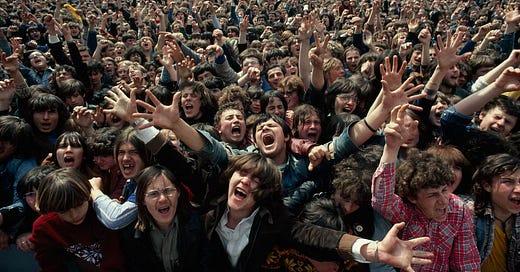Crowds display a singularly inferior mentality; yet there are other acts in which they appear to be guided by those mysterious forces which the ancients denominated destiny, nature, or providence, which we call the voices of the dead, and whose power it is impossible to overlook, although we ignore their essence. It would seem, at times, as if there were latent forces in the inner being of nations which serve to guide them.
—Gustave Le Bon
There have been bestselling books in recent years titled The Wisdom of Crowds and The Madness of Crowds. But my experience with them has been characterized by something else: tension.
At least when I have a healthy relationship with them.
The Self and the Multitude
It was an odd sensation tuning into the RNC and DNC for even a few minutes this summer and seeing levels of collective excitement that I have never in my life approached except maybe for the time my mom endured an entire LL Cool J concert with my friends and me in the ninth grade. I always w…





